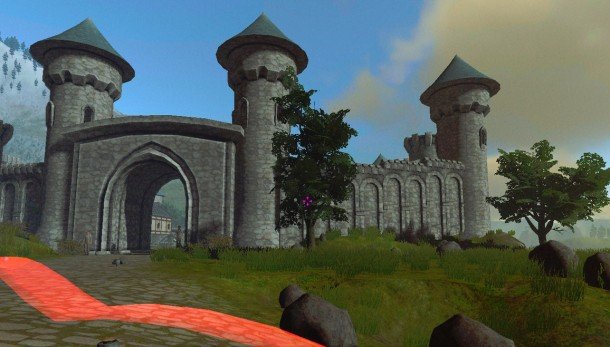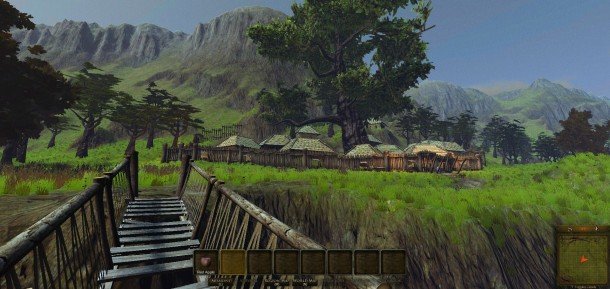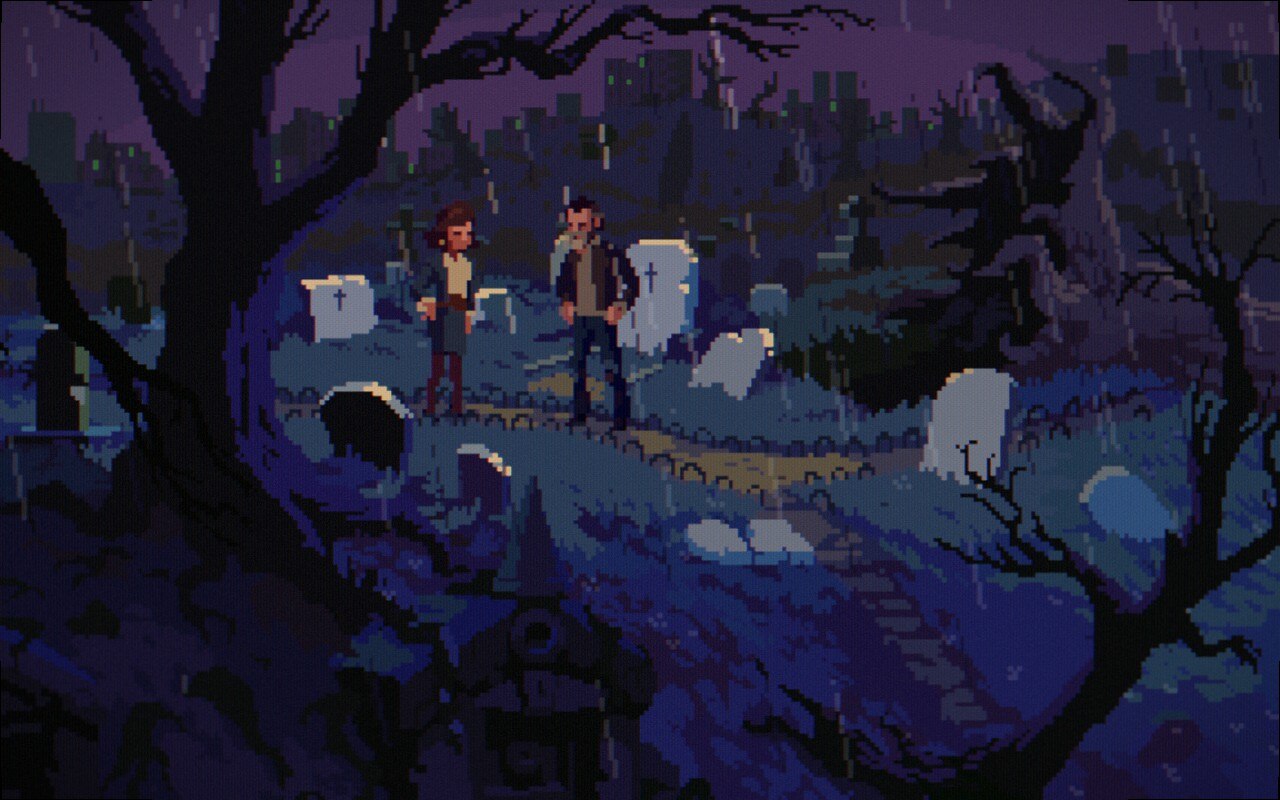Frontiers interview: exploration, discovery and survival in a one-man made indie RPG

Frontiers is an exploration heavy, first-person open world RPG, inspired by a love for - and occasional frustration with - The Elder Scrolls series. It's being created by Lars Simkins, a Visual FX artist who since 2011 has been building the game's vast environment. He's has now taken Frontiers to Kickstarter , in an attempt to raise money for a small team who can see the game through to completion. I spoke to Lars to learn about the philosophy and features that are driving this ambitious project, which aims to appeal to those who prefer the gentle pleasure of discovery to the thrill of hacking fantasy beasts into chunks.
Frontiers contains many of the RPG standards you'd expect. You'll embark on quests, learn skills and progress through a central story. But if your idea of the perfect RPG is clearing hundreds of monster ridden dungeons in search of marginal stat buffs to your gear, Simkins openly admits that Frontiers may not be for you. "Never hurts to give it a shot," he qualifies. "There are fights and weapons and quests and temples, so on the surface it would appear to have everything you'd want, right? But these things only exist to serve the exploration, and fights are usually very small scale and simple."
"[Quests] exist to serve the exploration."
Of course, grand role-playing heroism is already well served by established developers. Simkins cites Daggerfall, Fallout 2 and System Shock 2 as the titles that truly made him invest in gaming - presenting stories and worlds in a way unmatched by other forms of media. But he also notes that the "coldly logical" number-crunching nature of an RPG's systems can often be at odds with their desired emotional impact.
"Over time that mode of thinking sort of calcifies and spoils the emotional side," he explains. "Instead of looking for treasure in that abstract, right-brained way that gets your emotions going, you're looking for type [x] armor for level [y] and above class [z] so you can sell it for [#] gold pieces. You open a chest and discover a magnificent golden chalice and instead of reacting to the imagery and the sound and the mood of that moment, you're crunching numbers like an accountant."

To combat this, Frontiers focuses on discovery and survival. A central part of the game - what Simkins describes as its "one truly unique feature" - is the 'paths' system. By crafting Path Markers, you'll be able create a route that links distinct landmarks. "There are a few restrictions - Markers can't be too close or too far apart, for instance - but generally paths can be as long or short or wiggly as you want, and you can place Path Markers anywhere but in water."
"Paths can be as long or short or wiggly as you want."
A completed path provides a number of benefits. Firstly, it acts as a guide, creating a light beam along the ground that you can follow should you run out of torches at night. Secondly, walking along an established path provides a boost to your health and hunger. In a desperate situation, finding and following an established trail will give you a better chance at making it back to civilisation.
Paths also enable fast travel between landmarks, something that has been carefully designed to not take you out of the world. Pick a new destination, and instead of instantly teleporting, the camera swoops across the landscape - following your markers through a journey that can stretch across an entire region. It's no less of an unrealistic abstraction, but these picturesque flights are an elegant way of not forcing the player to retread old ground.
Keep up to date with the most important stories and the best deals, as picked by the PC Gamer team.
Immersion is clearly important to Simkins - something he compares to building a house of cards. With Frontiers, his aim is to create systems that feel engaging, but aren't so intricate that they knock over the deck. "The complexity of combat or skills or whatever hits a ceiling when it threatens to knock that house of cards over. Combat is a good example. Combat is totally possible in that dream state, and it can even be challenging - but it has to feel intuitive. It has to be something your right brain can handle."
"Strip all numbers and logic from the game and you're left with mush."
"Of course, there has to be a balance. If you strip all the numbers and logic from the game you're left with mush. It's just as bad for immersion to have no tangible benefits to hang onto as it is to have too many."
Ultimately, Simkins isn't afraid to abandon logic if the resulting system seems natural. "Crafting using a grid is absurd," he notes, "but it 'feels' right." It's an attitude that's been shaped by his work in VFX. "Movies are so impressionistic - we almost don't notice how impressionistic because editing conventions are so familiar to us now. But even a deliberately straightforward film does things that violate logic to get the audience to the right emotional state. Whatever works, right?"

Phil has been writing for PC Gamer for nearly a decade, starting out as a freelance writer covering everything from free games to MMOs. He eventually joined full-time as a news writer, before moving to the magazine to review immersive sims, RPGs and Hitman games. Now he leads PC Gamer's UK team, but still sometimes finds the time to write about his ongoing obsessions with Destiny 2, GTA Online and Apex Legends. When he's not levelling up battle passes, he's checking out the latest tactics game or dipping back into Guild Wars 2. He's largely responsible for the whole Tub Geralt thing, but still isn't sorry.

